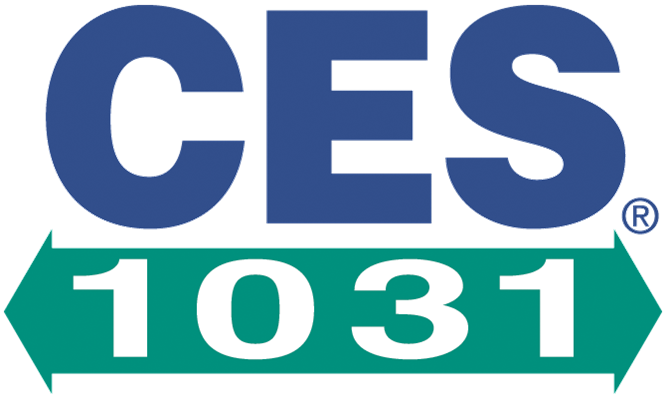
About Certified Exchange Specialists®Mission StatementThe Mission Statement of the Certified Exchange Specialist® Program: To establish a national designation program to formally recognize individuals who have demonstrated their knowledge of IRC Section 1031 rules and regulations pertaining to like-kind exchanges through testing and Continuing Education. To provide a designation that will give the public confidence that they are dealing with an individual who has demonstrated knowledge of the intricacies of a like-kind exchange. To encourage exchange professionals to increase their knowledge of IRC Section 1031 rules and regulations and to maintain currency in the subject through Continuing Education. To encourage the growth of the FEA by providing a nationally recognized certification program for exchange professionals. To increase the professionalism of the 1031 exchange industry and foster public confidence when selecting a 1031 exchange accommodator, the FEA administers a Certification and Continuing Education Program (the CES® Program). The CES® program confers the designation of Certified Exchange Specialist® (CES®) upon those qualified individuals who meet specific work-experience criteria and pass an examination on 1031 exchange laws and procedures. The CES® examination covers an array of exchange-related topics designed to challenge the candidate's knowledge of 1031 exchange rules and competency in performing the critical activities of an exchange accommodator. The test also focuses on those ethical issues that emerge when any third-party controls the funds of another. How was the CES® Program Developed?The eligibility requirements and examination materials for the CES® Program were developed by a national panel of experts, the CES® Certification Council. They established criteria for necessary work experience, identified the body of knowledge for 1031 exchange accommodation and determined the content areas appropriate for the examination. Certified Exchange Specialist® DesignationIn 1998, Margo Mucha McDonnell was chair of the FEA Continuing Education Committee and polled the volunteer committee members to determine the committee's goal for the upcoming year. Jim Casterline, a long-time FEA Director and incoming President, recommended the FEA develop a certification program. Over the next few years, many committees assisted in polling the FEA general membership to determine whether members wanted to develop such a program. In 1999, Brad Penner became co-chair and helped create our Mission Statement. At the FEA Annual Conference and General Meeting in October 2000, the FEA membership overwhelmingly voted to proceed with a voluntary certification program. In 2001, the term Certified Exchange Specialist® (CES®) was chosen as the designation members wanted to use to convey their competence to taxpayers and professional advisors. In 2002, a professional certification program consultant was retained to assist the FEA with developing and implementing its CES® Program. A Certification Council was created in the autumn of 2002 to work directly with our professional consultants. The Charter CES® Certification Council was as follows:
The inaugural CES® examination was administered on May 15, 2003, in Washington, D.C. The second was administered in San Francisco, California, on May 31, 2003. What is the Purpose of the CES® Program?The purposes of the CES® Program are to:
The CES® Certification Council, with the assistance and advice of professionals in relevant fields, has developed a credential that recognizes accepted levels of expertise in the industry to improve professional standards in 1031 exchange services. The CES® Certification Council welcomes constructive comments and suggestions from the public and the qualified intermediary community. Why did the FEA initiate the CES® Program?The Certified Exchange Specialist® designation was created to increase the professionalism of the 1031 exchange industry and foster public confidence when selecting an exchange accommodator.Who is eligible to become CES® certified?The exam is only available to those who possess specific work experience criteria. The CES® designation is awarded to those who pass an exam on 1031 exchange-related topics designed to challenge the candidate's knowledge of 1031 exchange rules. The exam also tests competency when performing the critical activities of an exchange facilitator and ethical issues that may emerge during a 1031 exchange.The CES® designation demonstrates to a taxpayer considering an exchange that the exchange accommodator they have chosen possesses a certain level of experience and knowledge. Who administers the CES® exam?The services of professional certification consultants were retained in the examination's conceptualization, development, and implementation. The CES® Certification Council administers the examination.When was the first CES® exam conducted?The first CES® exam was conducted in May 2003 in Washington, DC. The first designates (70) were recognized at the 2003 FEA Annual Conference in Las Vegas, NV, later that year.Are eligibility exemptions available to certain professionals, such as attorneys or CPAs?No. All applicants must meet the eligibility requirements to take the CES® examination.If I do not meet all of the requirements now, can I still become certified?No. To become certified, you must meet the minimum work experience requirement and take the exam. If you do not meet all the necessary qualifications, you will not be allowed to sit for the exam. |

